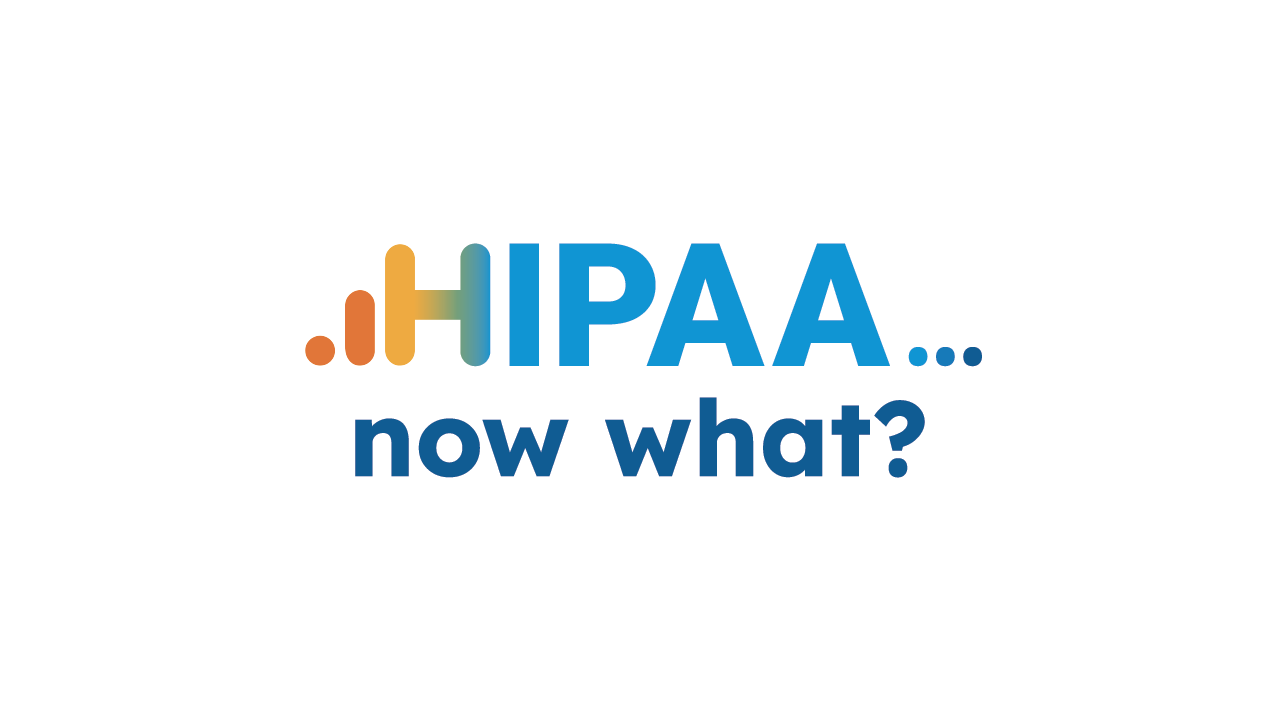So, you’ve learned that Google Analytics 4 (GA4) isn’t HIPAA compliant. Following the Department of Health & Human Services (HHS) guidance on avoiding the sharing of individually identifiable personal health information with tracking platforms or technologies, you’re probably feeling a bit uneasy. After all, HIPAA compliance is a fundamental aspect of your operation, ensuring patient information remains confidential and secure.
But, let’s ease those worries. The intersection of Google Analytics 4 and HIPAA, while critical to address, doesn’t have to be a major point of concern for your practice. There are compelling reasons why this situation shouldn’t disrupt your healthcare marketing efforts. With the use of HIPAA-compliant tools, strategies, and a focus on meaningful metrics, you can continue to run effective and successful campaigns while upholding the highest standards of patient privacy and data security.
Compliance and Performance in Healthcare
Google Analytics 4 offers valuable insights for many digital marketing strategies, especially in understanding web traffic and user behavior. While it can help you track various aspects of your website’s performance, when it comes to the specific needs of healthcare marketing, it’s also important to look a bit deeper. Here, it’s not just about collecting data, but about doing so responsibly and in a way that adds value to your practice.
HIPAA-compliant tools specifically designed for healthcare marketing ensure that your marketing strategies meet regulatory standards and also provide precise insights into critical areas of patient engagement and practice growth. For example, tracking Patient Acquisition Cost (PAC) helps you understand the cost-effectiveness of attracting new patients. Similarly, focusing on Return on Investment (ROI) gives you a comprehensive view of how your marketing investments are paying off in terms of patient acquisition and retention.
Instead of worrying about Google Analytics 4 and HIPAA non-compliance, your focus should be on tracking key performance indicators (KPIs) like appointments and revenue. This way you can get a clearer understanding of how your marketing efforts translate into real-world patient interactions and benefits. The fact that you might not have access to all the metrics offered by Google Analytics 4 doesn’t mean your marketing performance will suffer. In fact, by concentrating on KPIs, your marketing efforts can still be thoroughly data-driven and even more tailored to the unique healthcare industry’s demands. This approach ensures you’re collecting the right data that leads to actionable insights and tangible improvements in patient care and engagement.
Role of the Business Associate Agreements
The challenge of navigating Google Analytics 4 and HIPAA non-compliance can be partly addressed through Business Associate Agreements (BAAs). A BAA is a HIPAA-required contract that requires your vendor to protect patient health information in compliance with HIPAA standards. However, the effectiveness of a BAA in reducing compliance concerns varies depending on the type of vendor and the tools they use.
However, the effectiveness of a BAA in reducing compliance concerns varies depending on the type of vendor and the tools they use.
For example, if you partner with a marketing agency that signs a BAA, they might find a way to use Google Analytics 4 within the scope of HIPAA regulations. On the other hand, if you choose a platform that doesn’t integrate Google Analytics 4, the focus shifts entirely to their own HIPAA-compliant analytics tools. These tools often integrate with your practice management (PM) system and provide quantifiable data that directly links your marketing efforts to the actual patients acquired. This integration allows for a clear understanding of the effectiveness of different marketing strategies, so you can allocate resources more efficiently and focus on those that yield tangible results. In this context, vanity metrics like impressions, views, and clicks become less relevant because the emphasis is on actual patient appointments and procedures: the real impact of your marketing campaigns.
In other words, while BAAs offer a layer of protection and compliance, you need to carefully consider the specific tools and services your vendors provide. BAAs are an important part of the Google Analytics 4 and HIPAA compliance puzzle. Still, they are most effective when combined with tools that ensure compliance and enhance the overall marketing strategy with actionable, results-driven data.
Server-Side Tagging
Another strategy to navigate the Google Analytics 4 and HIPAA compliance challenge lies in the advanced technique of server-side tagging. This method enables you to use Google Analytics 4 while upholding HIPAA standards. By implementing Google Tag Manager on a separate server, server-side tagging provides a layer of control over how data is handled before it’s processed by analytic tools.
The key to server-side tagging is in its ability to redact sensitive information. When you control HTTP requests and manage what data gets sent to Google Analytics 4 for processing, you make sure that no Personally Identifiable Information (PII) or Protected Health Information (PHI) is inappropriately shared. This method allows for the masking or disguising of data such as IP addresses or specific healthcare-related pages, so that no PHI or HIPAA-protected data is transferred or even temporarily stored with Google.
Server-side tagging aligns with HIPAA’s strict privacy requirements while still using the power of Google Analytics 4 for insightful data analysis. This approach also demonstrates that you can find solutions that balance compliance with the need for comprehensive data analytics.
Step up Your Game with Enhanced Security and Tailored Strategies
Addressing the non-compliance challenge between Google Analytics 4 and HIPAA can initially seem like a significant barrier in healthcare marketing, but this also gives you a unique opportunity to redefine your healthcare marketing strategies. This shift involves a dual focus — enhancing data security and patient privacy while developing comprehensive, HIPAA-compliant marketing strategies.
Transform Patient Data Security
In the healthcare industry, adhering to HIPAA standards often limits the use of certain tools like Google Analytics 4 for patient data analysis. To navigate these restrictions effectively, the key is to adopt tools that are fully compliant with HIPAA. Since they come with robust security features like encryption and data anonymization, they provide a secure framework for collecting and analyzing patient data. This approach ensures the protection of patient data and aligns with legal requirements, reinforcing the trust patients place in your handling of their sensitive information.
Innovate within Compliance
 In addition to prioritizing patient privacy, HIPAA-compliant tools offer a deeper understanding of patient interactions and preferences. This enhanced capability stems from the fact that these tools are specifically built for the healthcare sector, unlike other industries where HIPAA compliance is not a requirement. As a result, they match the unique context of healthcare, providing more relevant and effective marketing results.
In addition to prioritizing patient privacy, HIPAA-compliant tools offer a deeper understanding of patient interactions and preferences. This enhanced capability stems from the fact that these tools are specifically built for the healthcare sector, unlike other industries where HIPAA compliance is not a requirement. As a result, they match the unique context of healthcare, providing more relevant and effective marketing results.
At the same time, this niche focus of HIPAA-compliant tools allows you to tailor patient-centric messages and campaigns to align more closely with patient expectations and engagement patterns, fostering trust and a deeper relationship with your healthcare practice.
Turn Challenges into Opportunities
The idea of running comprehensive campaigns without Google Analytics 4 might seem impossible, but healthcare’s distinct nature provides a different perspective. These tools, while invaluable, aren’t the only key to understanding and reaching healthcare audiences.
To successfully navigate the Google Analytics 4 and HIPAA non-compliance challenge, it’s important to focus on specialized tools operating within the HIPAA framework. They are precisely crafted for healthcare marketing, measuring the vital aspects of your strategy to optimize marketing spend and ensure every dollar contributes to patient engagement and practice growth. So, while it may seem that the Google Analytics 4 and HIPAA issue limits you, this actually opens the door to more customized and impactful approaches in healthcare marketing.
SocialClimb’s HIPAA-compliant platform provides you access to a suite of features that you can use to track and analyze key metrics, refine your marketing strategies, and customize your messaging. With real-time data and analytics on the performance of your marketing campaigns, you can make a smooth transition from tools like Google Analytics 4, and make strategic, data-driven decisions to optimize your efforts for higher revenue while reducing costs.











